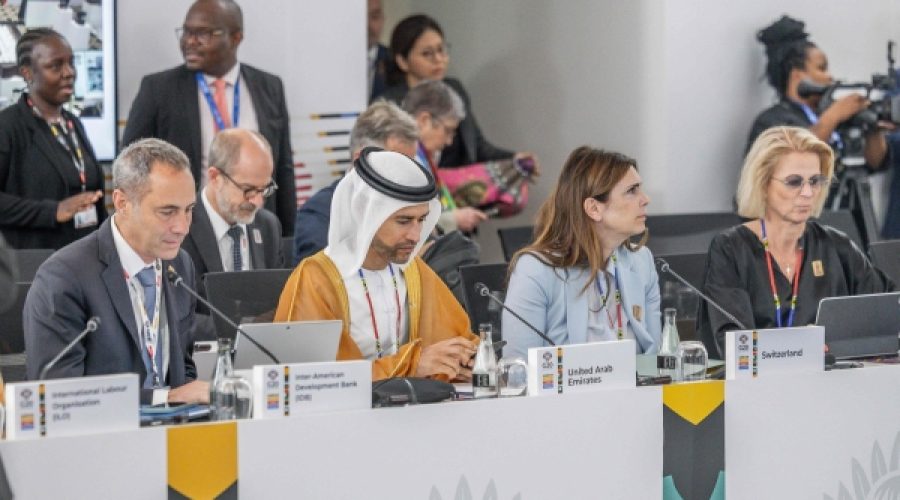G20 Nations Endorse Central Bank Independence: Implications for Global Investment Strategies
G20 Nations Emphasize Central Bank Independence for Price Stability
On Friday, G20 nations underscored the importance of central bank independence as vital for maintaining price stability amidst geopolitical and trade tensions. In a joint declaration following a meeting of finance ministers in South Africa—currently holding the bloc’s rotating presidency—the G20 stated, "Central banks are strongly committed to ensuring price stability, consistent with their respective mandates, and will continue to adjust their policies in a data-dependent manner."
The G20, which was established as a cooperative platform to address the 2008 global financial crisis, faced challenges in reaching a consensus during earlier discussions in February, disappointing the South African hosts. However, agreements reached in Durban are seen as a noteworthy accomplishment, even though G20 communiques are non-binding and the specific language remains ambiguous.
Raymond Gilpin, chief of strategy, analysis, and research at the United Nations Development Programme Africa, expressed optimism about the upcoming communique, noting, "I don’t think it’s a secret. It hasn’t been issued yet, but there’s going to be a communique."
Canadian Finance Minister Francois-Philippe Champagne also conveyed cautious optimism regarding the achievement of a final communique. Similarly, a representative from another G20 nation, who requested anonymity, shared a positive outlook.
Dutch Finance Minister Eelco Heinen remarked, "We have to see the final text, but I think it’s important that we reached a communique and common language. That’s an improvement from the last G20."
Under its presidency slogan—“Solidarity, Equality, Sustainability”—South Africa aims to advance an African agenda, focusing on issues such as the high cost of capital and financing for climate change initiatives.
Delegates strategized on global economic challenges, including trade tensions and climate finance wording. Some officials indicated that the agreement might highlight the advantages of free trade while avoiding negative references to tariffs and using less explicit terms regarding climate change.
Two delegates noted that achieving agreeable language acceptable to Washington posed a challenge, particularly given the absence of U.S. Treasury Secretary Scott Bessent from the two-day meeting. Bessent had also missed the February meeting in Cape Town, attended by officials from China, Japan, and Canada, even as the U.S. is expected to assume the G20 presidency in December. A G20 delegate mentioned that while Bessent’s absence was not ideal, discussions on trade and climate remained ongoing.
Finance ministers from Brazil, China, India, France, and Russia also did not attend the Durban meeting. However, South Africa’s Central Bank Governor Lesetja Kganyago emphasized that it was significant that all G20 countries were represented.
The discussions occur against the backdrop of the trade policies instituted under former President Trump, which have disrupted global trade norms and complicated the economic landscape. German Finance Minister Lars Klingbeil highlighted the urgent need to resolve the global trade conflict during conversations with G7 counterparts on the sidelines of the G20 meeting.
"We’re hearing many countries advocate for free trade and its importance, which is currently under pressure. This situation is not favorable for the world," stated the Dutch finance minister.
— Reuters
Special Analysis by Omanet | Navigate Oman’s Market
The G20’s reaffirmation of central bank independence showcases a potential stabilizing force amid global economic uncertainty, emphasizing the importance of price stability for sustained growth. For businesses in Oman, this could present both opportunities in expanded trade partnerships as countries advocate for free trade, and risks from geopolitical tensions impacting global markets. Smart investors should closely monitor central bank policies and prepare to leverage trends in climate finance and sustainable investments that are emerging as focal points in this evolving landscape.



